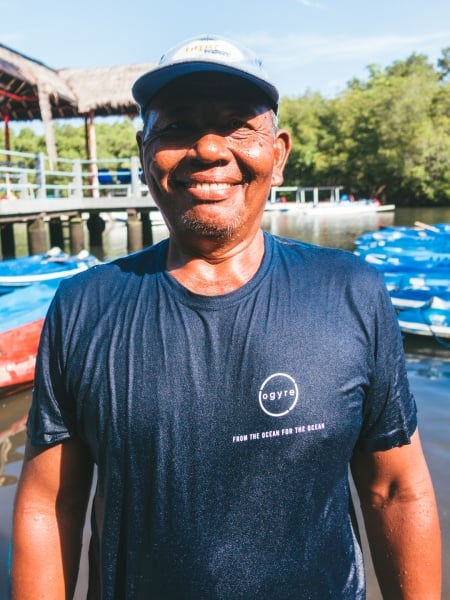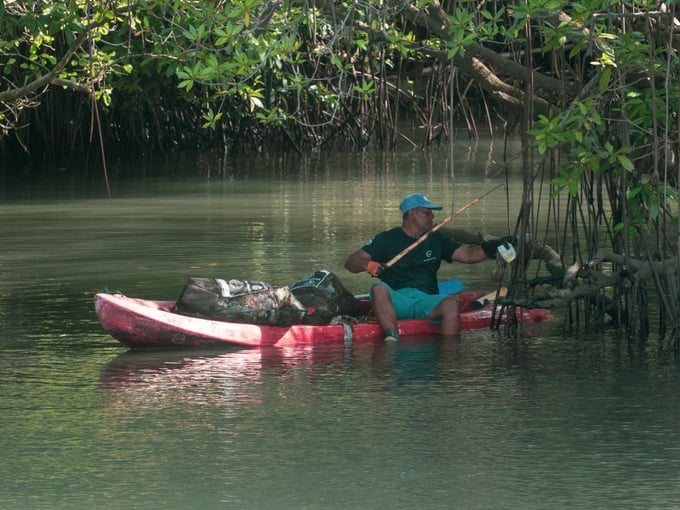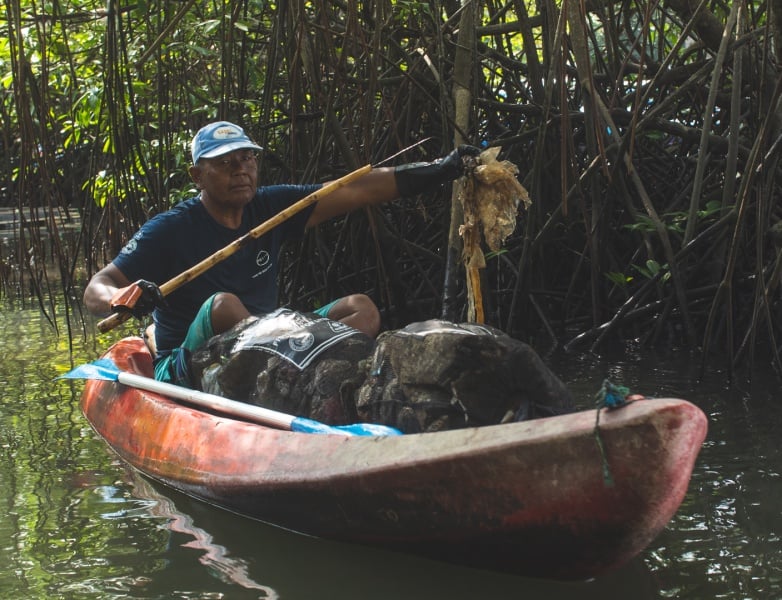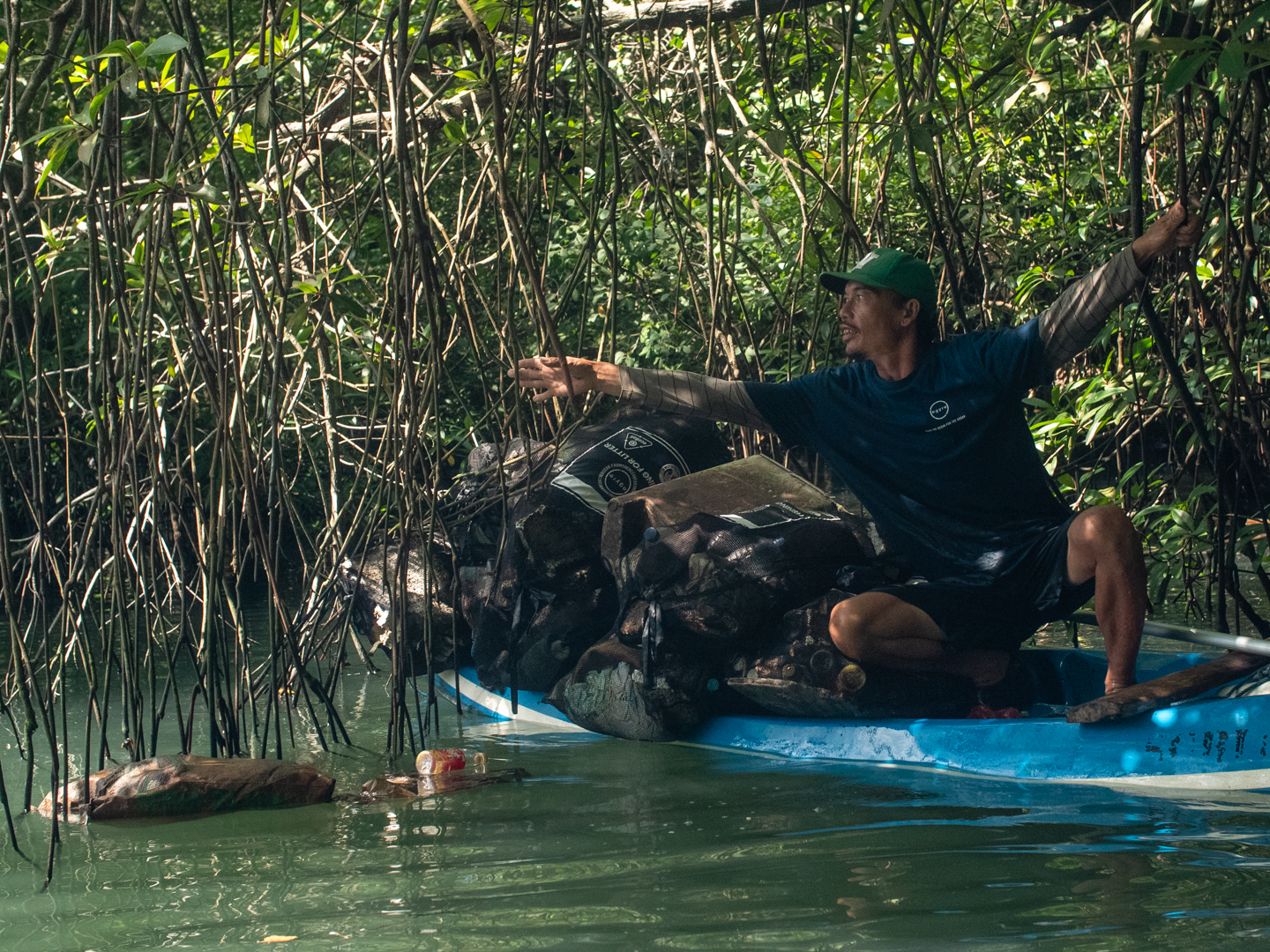Ogyre’s eyes and arms in Pemogan, Indonesia
The country's ocean is facing a severe pollution crisis that threatens not only the environment but also the livelihoods of local fishermen who rely on these waters for their income.

At Ogyre, we want to protect every inch of this precious resource. That’s why we work hard to activate projects that empower local fishermen to thrive despite the dire situation.
Wayan Mandi is one of the numerous seamen part of our international fleet committed to safeguarding the ocean by eliminating marine litter from its surface and bottoms.
Based in the coastal village of Pemogan, in the southwestern end of Indonesia, he’s been working at sea for the past 24 years and he’s seen the condition of his bay slowly deteriorating with time.
Every day he hops on his canoe and explores the luxuriant mangroves that embellish the area with the goal to free the trees from the entrapped waste. At the end of each trip, he brings it back ashore and gets it sorted out with our local partner.
“I don’t understand why people are not taking care of this issue” – Wayan Mandi
Indonesian fishermen who work in the mangrove bays have developed unique skills and techniques to navigate the complex ecosystem made of intertidal forests and waterways, with shifting tides and unpredictable currents.
They have learned to read the signs of the environment, such as changes in water color and the behavior of wildlife, to predict the best places to catch fish.
They use traditional tools and methods, such as hand-woven fishing nets and traps, to minimize their impact on the fragile natural equilibrium.
The knowledge and techniques of navigation have been passed down through generations, making them an integral part of the cultural heritage of the region.

Plastic waste accounts for approximately 70% of the total marine debris in the country's waters.
According to the Indonesian Ministry of Environment and Forestry, plastic waste accounts for approximately 70% of the total marine debris in the country's waters.
The pollution derives from two main sources: rivers and urban contexts.
The uncontrolled distribution of the waste varies depending on the season as Indonesia goes through monsoons.
While discarded plastic is a serious threat to marine life, it’s not just animals that are affected by the pollution crisis. The livelihoods of local fishermen are also at stake.

Locals like Wayan don’t understand why people are not taking this concern seriously as fishing is a crucial industry in Indonesia, providing employment for millions of people and contributing significantly to the country's economy. As plastic pollution increases, so does the risk of fish stocks being contaminated.
The Indonesian government has taken some steps to address the pollution crisis, including banning the use of single-use plastics in some cities and implementing a waste management program. However, these efforts are often hindered by inadequate infrastructure and limited resources.
But Indonesia is not a perpetrator, if anything it’s a victim of a global issue that needs to be analyzed and addressed properly from an international point of view.
Ogyre is a lifestyle, a catalyst for change.
If you believe the Earth deserves better, then Ogyre is what you need.


